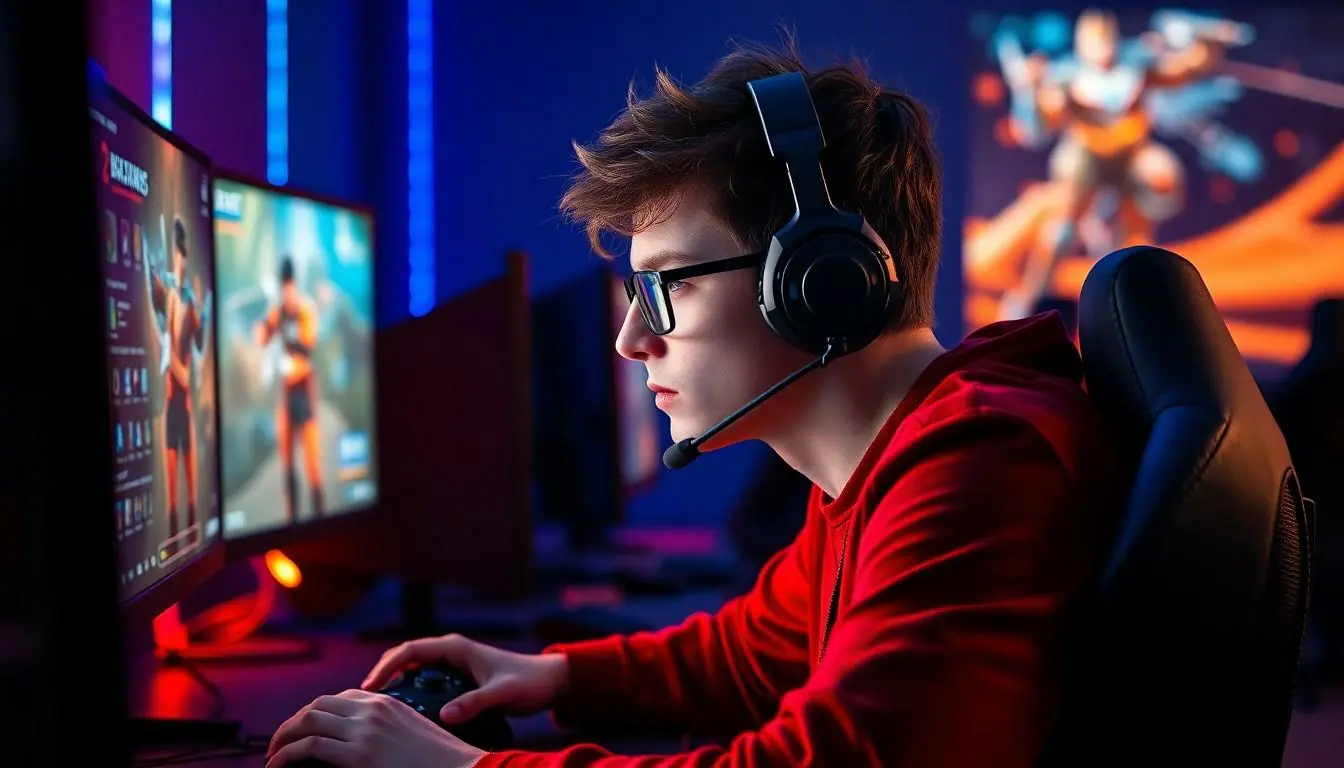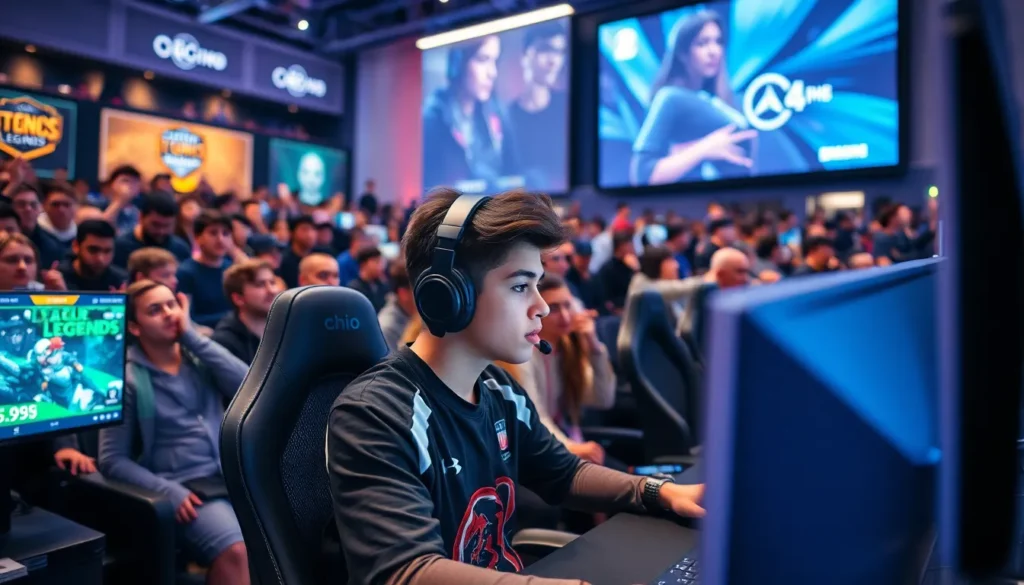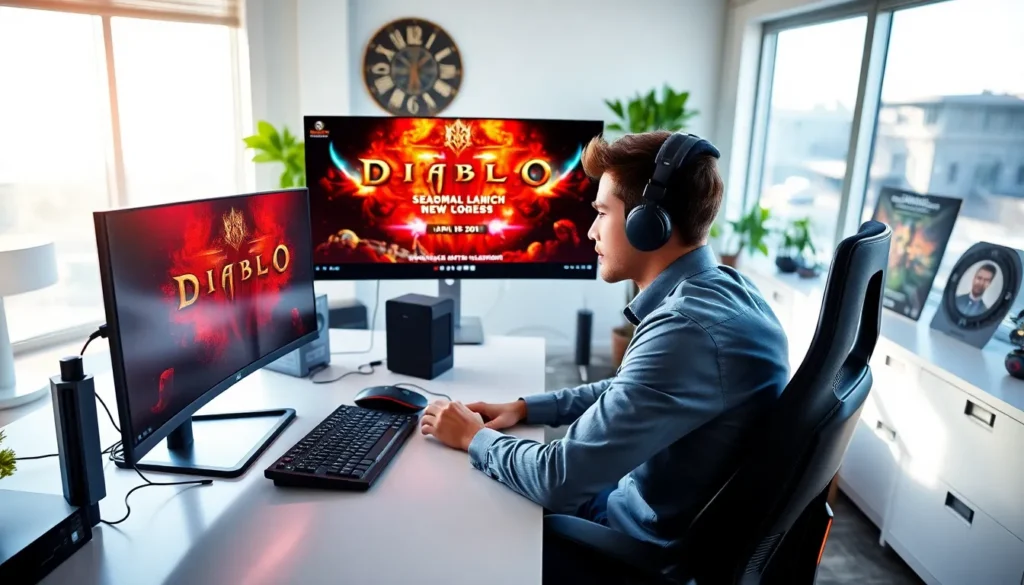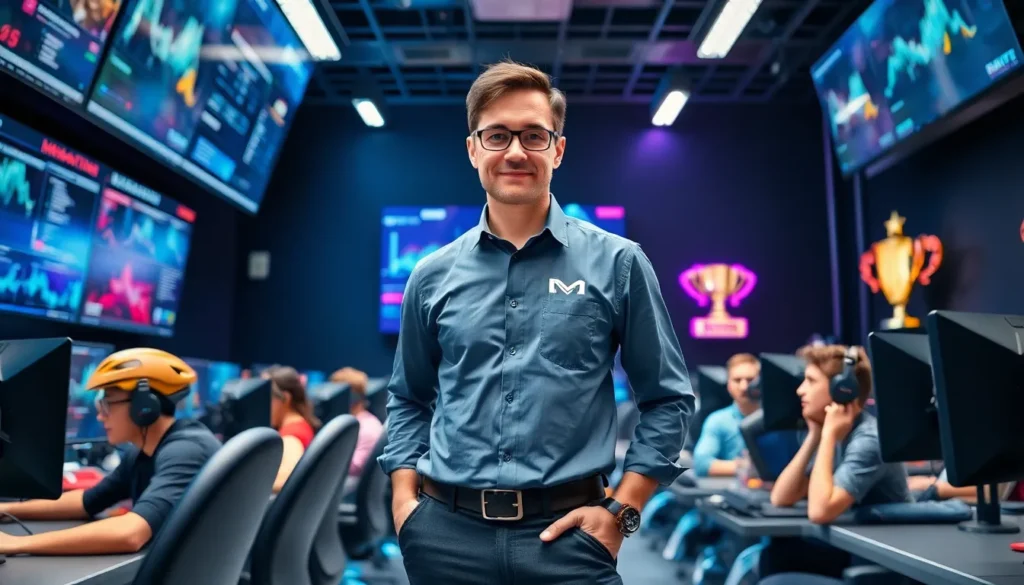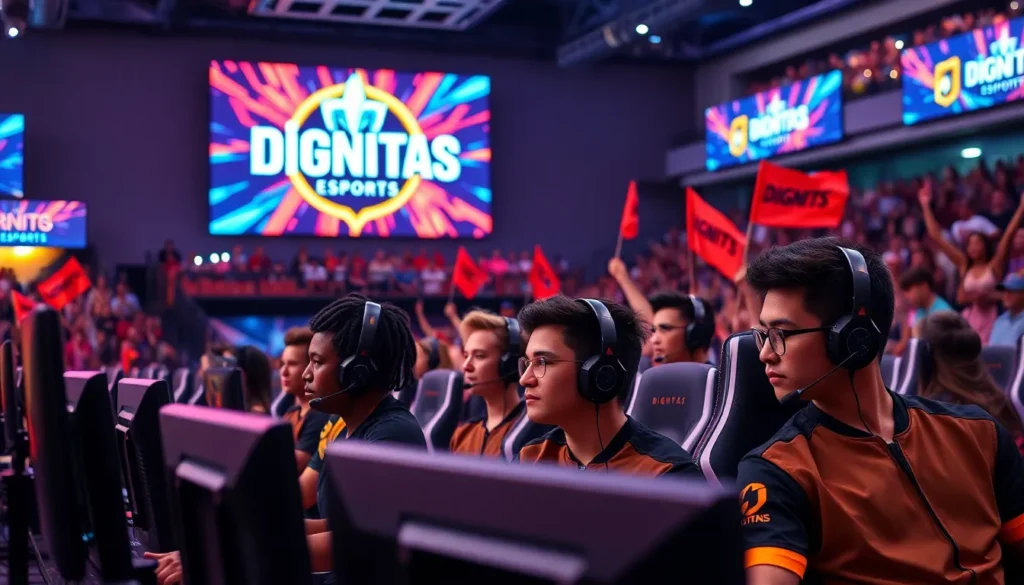In a world where gaming isn’t just a hobby but a ticket to fame and glory, joining an esports team might be the ultimate power-up. Imagine trading late-night snacks for championship trophies while flexing your skills on a global stage. Sounds epic, right? But before you grab your controller and start shouting “I’m ready!”, there’s a roadmap to navigate.
Table of Contents
ToggleUnderstanding Esports Teams
Esports teams play a crucial role in competitive gaming. Players collaborate to develop strategies, enhance skills, and compete in events worldwide.
Types of Esports Teams
Organizations categorize esports teams into three main types. Professional teams compete at the highest levels, representing brands and sponsors in major tournaments. Semi-professional teams usually participate in smaller competitions and may consist of players aspiring to go pro. Amateur teams often form around friends or local communities, focusing on fun and casual play while honing skills.
Benefits of Joining an Esports Team
Joining an esports team offers multiple advantages. Players gain access to structured practice schedules, helping them improve skills and tactics effectively. Collaboration with teammates fosters communication abilities vital for successful gameplay. Additionally, participation in tournaments enhances visibility and opportunities to gain sponsorships or professional offers. Being part of a team nurtures camaraderie, creating lasting friendships in the competitive landscape.
Preparing to Join an Esports Team
Joining an esports team requires careful preparation and strategic planning. Players must ensure they develop necessary skills and choose the right game to enhance their chances of success.
Developing Your Skills
Skill development stands as a foundational element in esports. Focus on practicing regularly, refining game mechanics, and mastering strategies. Players should analyze past performances to identify weaknesses and areas for improvement. Participating in online communities and forums can provide valuable insight and tips from experienced gamers. Enlisting in workshops or coaching sessions can also help accelerate skill development. Remaining adaptable and open to feedback strengthens gameplay and teamwork.
Choosing the Right Game
Selecting the right game plays a crucial role in joining an esports team. Each game has unique mechanics and player requirements, so choosing one that aligns with personal strengths is essential. Researching popular esports titles can reveal opportunities for competition and community engagement. Popular options include games like League of Legends, Dota 2, and Valorant, each fostering distinct competitive scenes. Commitment to a chosen game allows for deeper skill mastery and strategic understanding, paving the way for better performance within a team context.
Finding Esports Teams
Identifying suitable esports teams involves leveraging various platforms and establishing connections within the gaming community. Players must take proactive steps to explore their options.
Utilizing Online Platforms
Online platforms play a crucial role in finding esports teams. Websites like Discord, Teamfind, and GamerLink facilitate connections between players and teams actively seeking members. Many gaming-related forums and social media groups regularly post recruitment announcements. Utilizing these resources enables players to discover opportunities aligned with their skills and interests. Visibility increases by showcasing gaming achievements, stream links, or personal highlights on profiles. Engaging with content related to specific games can enhance networking efforts, making it easier to connect with potential teammates.
Networking with Players
Networking with fellow gamers helps broaden opportunities. Participating in online tournaments and community events allows players to showcase their talents while making crucial contacts. Building relationships with other players facilitates insights about team openings or upcoming competitions. Collaborating in casual games can also lead to discussions on competitive aspirations. Regularly reaching out to players through direct messages or engaging conversations fosters a supportive network. Exploring local gaming events or meetups strengthens community ties, providing a broader scope for team opportunities.
Application Process
Joining an esports team requires a systematic approach, starting with the application process. Players must create a strong representation of their skills and experiences.
Crafting a Compelling Resume
A well-structured resume highlights relevant gaming achievements and experience. Players should include their rank, main roles, and notable tournament participation. Teamwork and communication skills matter, so including a section on these attributes enhances appeal. Showcasing statistics from past matches demonstrates capability. Add links to gameplay footage or streams where possible for better visibility. Utilize clear formatting to ensure readability and make key accomplishments stand out.
Preparing for Tryouts
Preparation is crucial for succeeding in tryouts. Researching the team’s style and strategies helps tailor play accordingly. Players should practice specific skills relevant to the game and team dynamics. Understanding game mechanics and competitor strategies enhances gameplay during tryouts. Practicing with teammates, if possible, builds synergy and fosters effective communication. Lastly, staying calm and focused during tryouts can leave a lasting impression on team coaches.
Conclusion
Joining an esports team opens doors to exciting opportunities in the competitive gaming landscape. With dedication and the right approach players can elevate their skills and connect with like-minded individuals. The journey requires a combination of practice networking and showcasing one’s abilities effectively.
By following the outlined steps and maintaining a commitment to improvement players can find a team that aligns with their goals and aspirations. The camaraderie and shared experiences within an esports team not only enhance gameplay but also foster lasting friendships. Embracing this path could lead to unforgettable moments and potential success in the world of esports.

